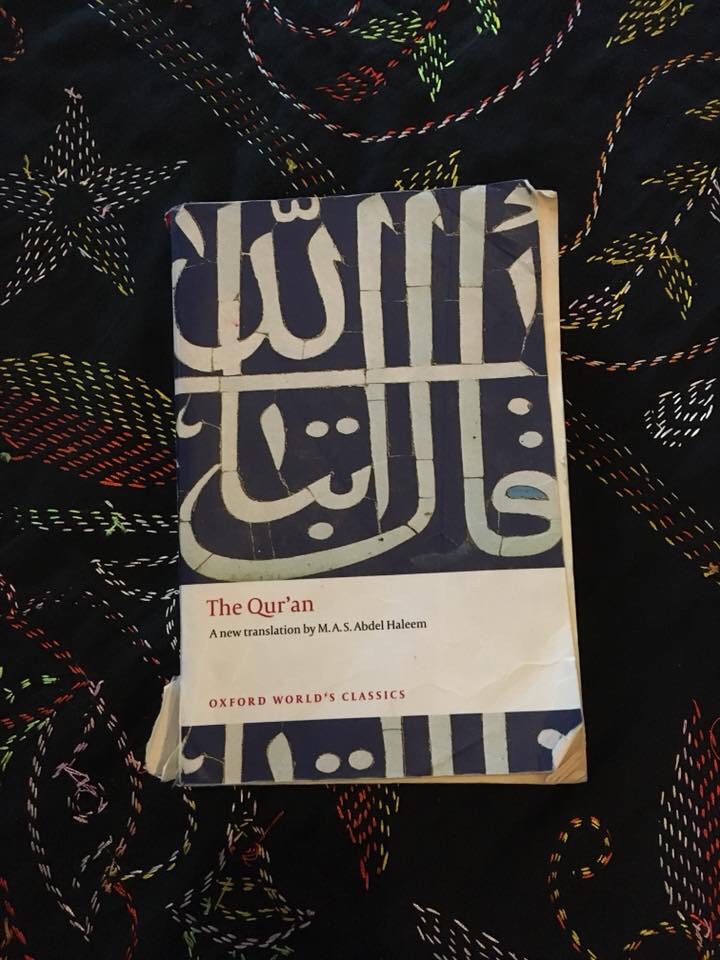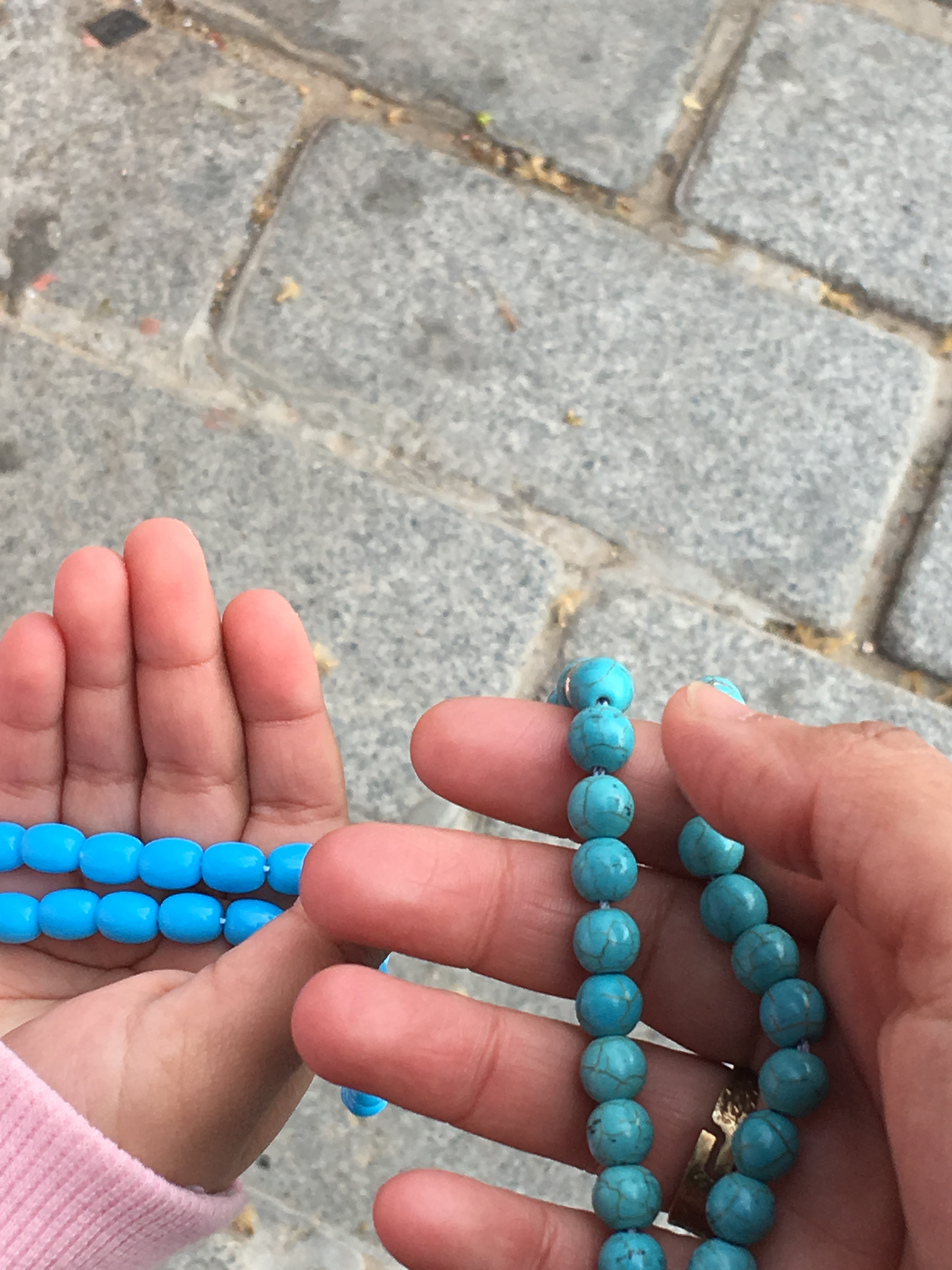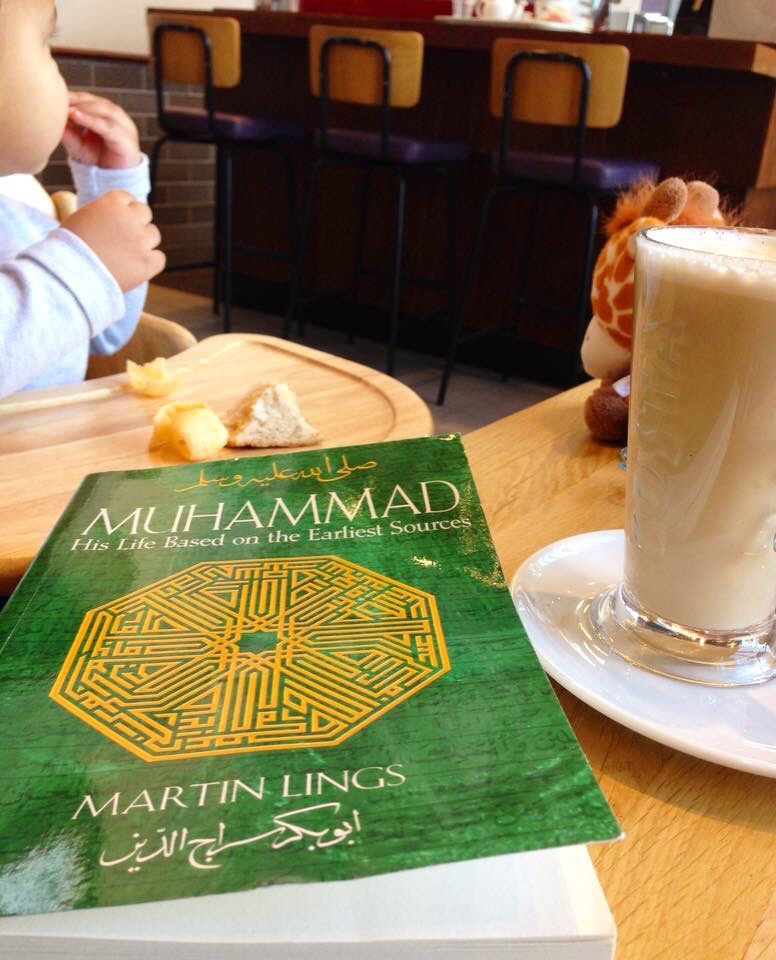Islam has so beautifully placed legitimate reasons for when someone shouldn’t/can’t fast, some of which are specific for us, the women of this ummah; menstruation, being post natal, nursing, ill health and some other exemptions.
I’ve been blogging for about four years now, and every year I seem to get a high number of messages from sisters, asking how they can make their Ramadan fruitful if they aren’t fasting. This seems like a real challenge many of us face. I’ve been there too. I’ve spent two Ramadans where I didn’t fast for the entire month.
So how can we still feel like we are reaping from the month when we aren’t fasting or praying?!
For me, I found planning ahead really helped. I found not fasting, meant I should do something that could provide me with a certain level of closeness to Allah. When in a state of fasting, we are encouraged to have an elevated level of awareness of Allah, helping us increase in taqwa, and so if we aren’t fasting, we should try and find things which help us as individuals grow in consciousness of Allah. I know many articles list things we could do if we are not praying or fasting, like dhikr, dua and reading. But these lists are sometimes half complete. What the articles don’t tend to talk about is how to make use of some of these good actions.
I want to list things I’ve done in the past, or usually plan for my non-praying days of Ramadan. This is a personal reflection and can and should change for each individual. It shouldn’t be the same for us all, because we are all different. The idea is to allow others to see that they too can plan for a life changing Ramadan with the absence of fasting.
Daily Adhkar: this should be something we do every day anyway. But we may fall short of it outside of Ramadan sometimes, we should plan to make sure that in Ramadan, it is a priority. Sometimes, Ramadan is the perfect time to start a good habit. These adhkar (or set of duas) can be found in good dua books like The Fortress of the Muslim.
Sadaqah: make a list of things you could do/give as sadaqah. Sometimes we remain so focused on giving money, that if we don’t have much of it, we feel we can’t participate in the great deed of charity giving. We can, this is where our most Merciful Rabb allows us to gain reward even in small actions that we may overlook. As I teach my children certain acts of sadaqah, I realise how much of it we can really do daily, if our intentions were set in the right place. Making a list for this helps, as you can then plan your days around some of these. You can look up things that count as sadaqah and see how realistic it is for you to do such actions. You can write your list out in to strips of paper, put it in a jar, and take one out to do daily. The list doesn’t have to be something heavy going, it could simply be sharing some dates with your neighbour, or watering the plant, or leaving some water outside for birds to drink from. You can get some ideas here.
The Prophet (saw) said:
“Every man will be in the shade of his charity on the Day of Resurrection.”
(Ahmad)
Understanding the Quran: so most of us can’t recite Quran, if we aren’t praying or fasting. But those who are not fasting for other reasons such as nursing, and are still praying, can set some solid Quran goals. I wrote this last year with a lot of ideas on Quran goals mothers can set.
For those who can’t recite the Quran, then know that it doesn’t end there. Reciting Quran is only one element of it, to take from it is probably a bigger part of its relevance in our lives, and to achieve this, find books, translations, tafsir, online talks and podcasts, that you can put together and rely on for that spiritual connection on the days you’re not praying. If all this is put together before Ramadan arrives, then you’re more likely to make use of it. Maybe put aside a little notebook, which can be for Quran journaling, where you can write down how certain verses make you feel. There is no end to what the Quran can give us, so let’s take from it in the same way. Non praying days shouldn’t stop us from letting Allah talk to us. I recommend everyone finds a translation they love and keep it with them throughout the month. Work through it. Maybe find one surah you read over and over again (surah Yusuf is good one for that). I recommend Abdul Haleem’s English translation for this.
Do they not reflect on the Qur’an carefully (4:82)

Dhikr: remembering Allah is recommended and offers great spiritual uplifting – find words of remembrance from the Quran, the Sunnah and write them all down. Or highlight them in dua books. Make good use of them now, get your tongues used to saying them, they’ll become second nature in Ramadan. Maybe you could use Salah times, to sit and remember Allah – having a dedicated time and spot for this can help.
“O you who believe! Remember Allah with much remembrance.” (33:41)

Study the seerah: by study I don’t mean sign up for a course (you can do that too) but I mean, find a good seerah book or series online (I recommend the one by Yasir Qadhi) and listen/read about his (saw) life every day in Ramadan. There is so much to take from the most perfect human’s life – it pushes a believing heart to want to connect with Allah after knowing more about the Prophet Muhammad (saw). This actually really helps in doing more salawat on the Prophet (saw).
The Prophet (saw) said: “Whoever prays for Allah’s blessings upon me once, will be blessed for it by Allah ten times. (Muslim)

Listen to Quran: do you have a favourite qari? Then listen to it all the time. There is reward in this, if you don’t understand arabic, then maybe you could spend five minutes a day, listening to Quran and then reading the translation of the same surah afterwards. This way you can reflect better and the Quran can become more than just background sound that pleases your ears.
And when the Qur’an is recited, give ear to it and pay heed,
that you may obtain Mercy (7:204)
Dua: make dua like you’ve never made dua before. I tell myself this every Ramadan. I make dua lists, I write them down, I find pockets of time in the day where I will make sure I make dua even if I’m not praying. I find we so easily can lose “touch” with Allah when we haven’t sat on the prayer mat or when we haven’t placed our head in sajdah for Him. It’s a funny feeling we start to crave for, so it’s nice to be able to direct that emotion into dua.
The Prophet (saw) said: “Dua is worship.” (At Tabarani)
Making food for others: I know some sisters do really well in this department and have a table spread of food served at iftar for loved ones. I don’t. I mean I cook the basic dinner but I don’t make feasts. We sometimes share food with others. This act of sharing, be it lavish or simple, can and is an act of worship. So plan for it if your health allows you. Plan to offer iftar on your non-fasting days, maybe to your local masjid or a university prayer room where there maybe people who are travelling or those with no family.
The Prophet (saw) said: “Whoever gives iftaar to one who is fasting will have a reward like his, without that detracting from the reward of the fasting person in the slightest.”
(At-Tirmidhi, Ibn Maajah)
Be a mum: I know this one sounds silly, but truly, being a mother is hard work, doing it in Ramadan is even harder. So know that your job is of high regard in Allah’s eyes, He knows of your struggles, your heartfelt desires to please Him through your children, He knows your heart better than you do. Tell yourself this. Maybe even put it in a notebook or your phone. Know that looking after them is also a good deed, an amanah you are taking full care of – relate it back to your covenant with Allah, and find great pleasure in knowing He loves you for what you do. That there is immense reward in feeding your child, or sitting down to recite some Quran with them even if it means, you can’t read more than a page from your own mus’haf.
The Prophet (saw) said: “Every one of you is a shepherd and is responsible for his flock. The leader of people is a guardian and is responsible for his subjects. A man is the guardian of his family and he is responsible for them. A woman is the guardian of her husband’s home and his children and she is responsible for them. The servant of a man is a guardian of the property of his master and he is responsible for it. No doubt, every one of you is a shepherd and is responsible for his flock.”
(Bukhari and Muslim)
Increase in goodness: “but I’m already good” I hear you say, and I say, let’s all get better at it. Sometimes it’s easier to remain focused with good actions when we are fasting and so when we aren’t we sometimes continue with bad habits, but it’s important to remember, that even if we are not fasting, it is still Ramadan, days that are so, so precious. So keep yourself in check and increase in all the good that you know you are capable of. Allah says in the Quran:
“So race to all that is good” (2:148)
Make istighfar: asking Allah for forgiveness can be done whenever. Something I did during Hajj, now over 11 years ago, was make a list of all my faults. Yes, it was a long list, but what it allowed me to do was feel a certain way in front of Allah. Ever since, I do this every Ramadan. Well actually just before Ramadan starts. It’s sometimes difficult to feel the remorse of some of our bad actions, so I feel preparing for this helps. Our beloved, unblemished Prophet (saw) would make istigfhar more than 70 times a day, let’s race towards asking Allah for our own forgiveness.
The Prophet (saw) said:
“If anyone constantly seeks pardon (from Allah), Allah will appoint for him a way out of every distress and a relief from every anxiety, and will provide sustenance for him from where he expects not.”
(Abu Dawud)
Talk to others: tell your husband, parents, siblings and children, whoever you live with, that you’re not fasting but still want an amazing Ramadan. It is important that others we live with know how we feel, they can help us achieve things at times and not end up thinking that just because so and so isn’t fasting, they don’t want to reach high with their goals.
The believing men and believing women are allies of one another. They enjoin what is right and forbid what is wrong and establish prayer and give zakah and obey Allah and His Messenger. Those – Allah will have mercy upon them. Indeed, Allah is Exalted in Might and Wise.
(9:71)
I’m sure a lot more can be added to this list, but I’m going to leave it at this. These are things I’ve focused on so I share them here. I think the overall message I’m trying to give is, plan it to make it happen. Writing down all the things you could potentially do, is like having a contract with yourself, it becomes some what binding. And even if we can’t do half of what we plan, what we intend stays there with Allah and His angels as good intentions. Such a win win situation.
I’m not sure how beneficial this blog post is, or if I’ve even managed to pass on what I wanted to, but if you like it, please share with others and please take 30 seconds out to make dua for my heart, for Allah to keep it beating for Him and protect it from wrong.
I want to take this opportunity to ask for forgiveness for anything I write on any of my social media platforms that may have offended anyone, may Allah cover our mistakes and accept our good.
Have a beautiful Ramadan.
Umm Y
Sha’ban 2019


